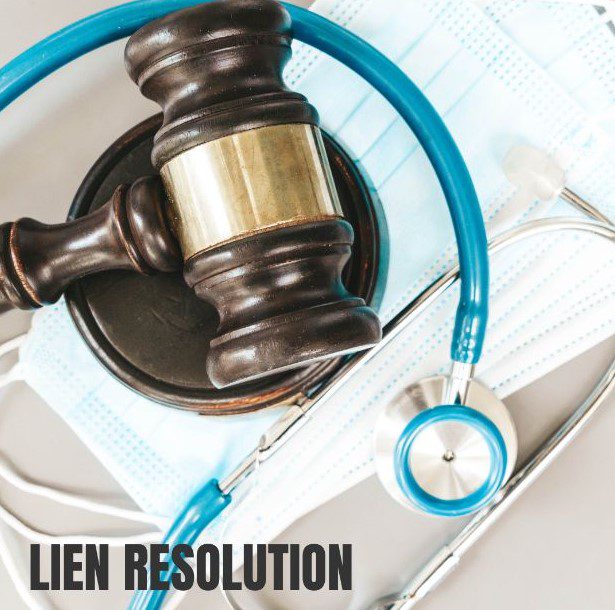Understanding the New Civil Monetary Penalties (CMPs) Rule for Healthcare Lien Compliance
On October 11, 2024, the final rule for Civil Monetary Penalties (CMPs) went into effect, marking a significant change for Group Health Plan (GHP) and Non-Group Health Plan (NGHP) Responsible Reporting Entities (RREs). With this enforcement date, compliance is now more critical than ever to avoid penalties and ensure accurate reporting.
Background and Overview
Section 111 of the Medicare, Medicaid, and SCHIP Extension Act (MMSEA) of 2007 requires Responsible Reporting Entities (RREs) to report certain information about settlements, judgments, awards, or other payments to Medicare beneficiaries. This reporting is essential for Medicare Secondary Payer (MSP) compliance and ensures that Medicare is appropriately reimbursed for payments made on behalf of beneficiaries.
- Enactment and Initial Development
-
- December 29, 2007:
- MMSEA Section 111 Enacted
- President George W. Bush signed MMSEA into law, introducing mandatory reporting requirements for RREs, including insurers, self-insured entities, group health plans (GHPs), and Non-Group Health Plans (NGHPs).
- MMSEA Section 111 Enacted
- December 29, 2007:
- Implementation Timeline
- July 1, 2009:
- Initial Voluntary Reporting Begins for NGHPs
- CMS opened a voluntary reporting period to allow NGHPs (liability insurance, no-fault insurance, and workers’ compensation) to familiarize themselves with the reporting process.
- Initial Voluntary Reporting Begins for NGHPs
- January 1, 2010:
- Mandatory Reporting for GHPs
- GHPs were required to begin mandatory Section 111 reporting.
- Mandatory Reporting for GHPs
- January 1, 2011:
- Mandatory Reporting for NGHPs
- NGHPs were required to start mandatory Section 111 reporting, covering settlements, judgments, awards, or other payments made to Medicare beneficiaries.
- Mandatory Reporting for NGHPs
3. Ongoing Updates and Changes
- 2011 – 2017:
- CMS Updates and Alerts
- CMS issued several alerts and updates, refining reporting requirements, updating user guides, and introducing reporting thresholds for NGHPs.
- CMS Updates and Alerts
4. Legislative Amendments and Delays
- February 10, 2012:
- SMART Act Signed into Law
- The Strengthening Medicare and Repaying Taxpayers (SMART) Act was signed, amending Section 111 by introducing reporting thresholds and conditional payment recovery
- SMART Act Signed into Law
- January 2017:
- Medicare Claims Reporting Thresholds Updated
- CMS set and updated thresholds for mandatory reporting to reduce the reporting burden on NGHPs.
- Medicare Claims Reporting Thresholds Updated
5. Recent Developments: Civil Monetary Penalties (CMPs)
- February 18, 2020:
-
- CMPs Proposed Rule Published
-
-
- CMS published the proposed rule for CMPs to enforce Section 111 reporting requirements and penalize non-compliance.
-
- October 11, 2024:
-
- CMPs Final Rule Effective Date
-
-
- The CMPs final rule went into effect, establishing penalties for non-compliance.
-
-
-
- Compliance Timeline Initiation:
-
-
-
-
- No retroactive reviews are permitted prior to October 11, 2024. Violations may result in significant penalties of up to $1,000 per day for each occurrence.
-
-
-
-
- CMS Review Eligibility:
-
-
-
-
- Reportable MSP instances on or after October 11, 2024, are eligible for CMS review.
-
-
-
-
- 365-Day Reporting Requirement:
-
-
-
-
- MSP instances occurring on or after this date must be reported within 365 days to comply with the CMPs enforcement date of October 11, 2025.
-
-
6. Looking Ahead: Enforcement and Compliance
- October 11, 2025:
-
- CMPs Enforcement Date
-
-
- Civil Monetary Penalties will be enforced for non-compliance, emphasizing the importance of accurate and timely Section 111 reporting.
-
Maintaining Active and Certified RREIDs
To stay compliant and avoid CMPs, it is essential to keep RREIDs in active and certified status by:
- Updating Contact Information: Ensure all contact details are accurate and up-to-date, especially during recertification, to reflect any employment changes.
- Consistent Communication: Maintain reliable communication channels to address issues and alerts promptly.
- Regular Review: Periodically review RREIDs’ details, including the EDI representative’s contact information, to capture any significant changes.
These proactive steps are crucial for handling potential CMPs correspondence effectively.
The Importance of Accurate Reporting and Timely Lien Resolution
Accurate reporting is key to ensuring precise recoveries and mitigating the risk of CMPs. In addition, timely lien resolution plays a vital role in healthcare lien compliance by:
- Early Start: Beginning the process promptly ensures timely resolution and guarantees that all amounts are accurately reported to the appropriate parties before settlement disbursement.
- Streamlining Negotiations: Collaborating with other firms and relevant agencies helps ensure accurate claimant responsibilities are identified, resulting in more efficient and effective negotiations.”
- Clear Responsibility Definitions: Clearly defining roles in initiating, reporting, managing, and resolving liens, ensures legal and regulatory compliance.
- Partner with Compliance Experts: Consider partnering with experts, like Verus, to navigate the complexities of Section 111 reporting and lien resolution efficiently.
Partner with Verus for Seamless Lien Resolution
Navigating the complexities of healthcare lien compliance and avoiding CMPs requires expertise and proactive strategies. At Verus, we specialize in Medicare reporting and lien resolution, offering end-to-end support to ensure compliance while minimizing risks.
Contact Verus today to learn how we can support your lien resolution needs and help you stay compliant with the latest CMPs regulations.








